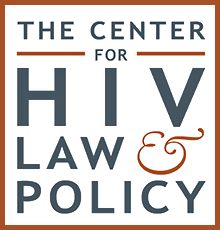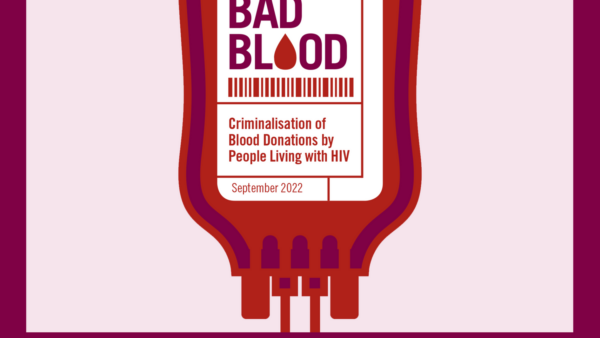Overview
Idaho introduced an HIV-specific ‘exposure’ law in 1988, criminalising people living with HIV in a number of ways. The law has been enforced many times since its adoption.
The law makes it an offence for anyone living with HIV to ‘expose’ another ‘in any manner with intent to infect’, or to transfer or attempt to transfer bodily fluids, tissues, or organs to another with knowledge of their HIV status. This ‘transfer’ can be through sexual activity, including oral sex, sharing needles or syringes, or giving blood, semen, tissues, or organs for the purpose of transfer to another (see our report, Bad Blood, for a global analysis of the criminalisation of blood donations). There is no need for transmission to be proven, and ‘intent to infect’ is interpreted very broadly. Condom use is no defence, however there is an affirmative defence of ‘medical advice’ whereby someone was advised that they were non-infectious, which could provide a defence for someone with an undetectable viral load. There is also an affirmative defence of consent in the context of sexual activity where HIV status and the ‘risk’ of transmission was disclosed and the partner consented to the act, however it is often difficult to prove this happened. This offence is a felony, carrying a sentence of up to 15 years’ imprisonment and a fine.
Despite Idaho’s relatively small population, there have been an unusually high number of instances of the law being enforced during its lifetime. Almost all case reports we are aware of relate to consensual sexual activity in which it is alleged that known HIV-positive status was not disclosed. The first successful prosecution occurred in 1996, when a man living with HIV was sentenced to 15 years’ imprisonment for alleged ‘exposure’. This was his second charge, after a 1990 charge was dropped in a plea deal. In 2009 he pleaded guilty to a third charge of HIV ‘exposure’ and sentenced to up to 30 years in prison, but this plea was subsequently retracted and legal proceedings have suggested that the man always insisted on wearing condoms and had an undetectable viral load at the time of his third incident. A November 2020 commutation hearing granted him the opportunity of early release in September 2023. In another case in 2013, a man was sentenced to 44 years’ imprisonment for alleged ‘exposure’ and non-disclosure, despite the acts in question being highly unlikely to transmit HIV. These cases highlight the severity of the law in Idaho.
The only non-sexual case we are aware of concerns a 2019 charge for donation of plasma. In the case a man was allegedly aware that he was living with HIV but did not disclose this on the donor information form. The man was arrested after HIV was detected in the plasma during screening.
Aside from this HIV-specific law, there is also a general disease law which makes it an offence for people living with venereal diseases considered ‘dangerous to public health’, which includes HIV, to knowingly ‘expose’ another to infection. There is no requirement for intent or transmission, and disclosure is not a defence to this provision. This carries a penalty of up to six months’ imprisonment and/or a fine.
Additionally, public health laws give officials the power to compel people suspected of living with venereal diseases to undergo examination, treatment, isolation, and quarantine. Violation of such orders can result in imprisonment for up to six months and/or a fine.
For a detailed analysis of HIV criminalisation in Idaho, as well as all other US states, see the Center for HIV Law and Policy report, HIV Criminalisation in the United States: a Sourcebook on State and Federal HIV Criminal Law and Practice.
Laws
Idaho Code § 39-608
Transfer of bodily fluids which may contain the HIV virus
(1) Any person who exposes another in any manner with the intent to infect or, knowing that he or she is or has been afflicted with acquired immunodeficiency syndrome (AIDS), AIDS related complexes (ARC), or other manifestations of human immunodeficiency virus (HIV) infection, transfers or attempts to transfer any of his or her body fluid, body tissue or organs to another person is guilty of a felony and shall be punished by imprisonment in the state prison for a period not to exceed fifteen (15) years, by fine not in excess of five thousand dollars ($5,000), or by both such imprisonment and fine.
(2) Definitions. As used in this section:
(a) “Body fluid” means semen (irrespective of the presence of spermatozoa), blood, saliva, vaginal secretion, breast milk, and urine.
(b) “Transfer” means engaging in sexual activity by genital-genital contact, oral-genital contact, anal-genital contact; or permitting the use of a hypodermic syringe, needle, or similar device without sterilization; or giving, whether or not for value, blood, semen, body tissue, or organs to a person, blood bank, hospital, or other medical care facility for purposes of transfer to another person.
(3) Defenses:
(a) Consent. It is an affirmative defense that the sexual activity took place between consenting adults after full disclosure by the accused of the risk of such activity.
(b) Medical advice. It is an affirmative defense that the transfer of body fluid, body tissue, or organs occurred after advice from a licensed physician that the accused was noninfectious.
Idaho Code § 39-601
Venereal diseases emunerated
Syphilis, gonorrhea, human immunodeficiency virus (HIV), chlamydia and hepatitis B virus (HBV), hereinafter designated as venereal diseases, are hereby declared to be contagious, infectious, communicable and dangerous to public health; and it shall be unlawful for anyone infected with these diseases or any of them to knowingly expose another person to the infection of such diseases.
Further resources
Not all laws used to prosecute people living with HIV in this state are included on this page. For a comprehensive overview and analysis of HIV-related criminal and similar laws and policies, visit The Center for HIV Law and Policy






